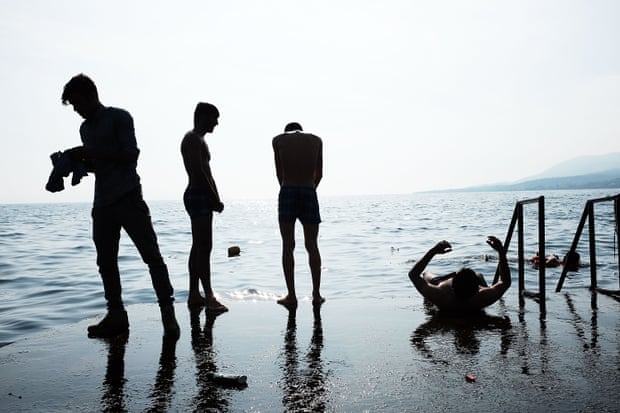Rumours and lies: 'The refugee crisis is an information crisis'
As refugees desperately search for reliable information, one NGO has created a rumour tracker to investigate and disprove the myths circulating the camps
These are just three of the many confusing rumours that migrants and refugees might hear. Some of them are downright dangerous, like the one about the raft. Others cause people to make the wrong decisions or take risks.
In response, the Mediterranean Rumour Tracker project has been launched to better inform migrants of the facts. Fieldworkers who speak Arabic or Farsi engage with people in the Greek camps, collect the rumours that are circulating, and then verify or dispel them. This information is posted on a dedicated website and corresponding Facebook pages in English, Arabic, Farsi and Greek.
“With our Facebook pages, we reach about 350,000 people,” says Stijn Aelbers of InterNews, the organisation that has set up the rumour tracker in collaboration with two other NGOs: Translators without Borders and ActionAid. “But we think face-to-face contact is just as important. People like to talk with a real person, they want to be able to ask questions.”
Migrants and refugees are constantly on the move; this means traditional media often don’t reach them. So they get their information from hearsay, from stories that circulate among their group. Aelbers says: “As many of these stories are unfounded or only half true, they run the risk [of taking the] important next steps on the basis of false information.’’
Some rumours arise simply because people misinterpret information they get. “The rumour about Venezuela, which as a South American country cannot be part of the EU-relocation programme, probably stems from a Greek ferry boat called Venizelos,” he adds.
Rumours can also be damaging in other ways. Some may be told not tell the authorities that they are Muslim, leading them to lie during registration procedures, which can cause problems later on. And rumours in refugee camps that some groups are treated better than others, or simply get better food, can lead to conflict and brawls.
Continue here in The Guardian: https://www.theguardian.com/global-development-professionals-network/2016/aug/18/rumours-and-lies-the-refugee-crisis-is-an-information-crisis
KINDLE BOOKS (dus gewoon op de telefoon of de computer te lezen en in Amerika veel goedkoper)
Interessant artikel? Deel het eens met uw netwerk en help mee met het verspreiden van de bekendheid van dit blog. Er staan wellicht nog meer artikelen op dit weblog die u zullen boeien. Kijk gerust eens rond. Zelf graag wat willen plaatsen? Mail dan webmaster@vreemdelingenrecht.com In verband met geldwolven die denken geld te kunnen claimen op krantenartikelen die op een blog als deze worden geplaatst maar na meestal een dag voor de krantenlezers aan leeswaardigheid hebben ingeboet terwijl wij vreemdelingenrecht specialisten ze soms wel nog jaren gebruiken om er een kopie van te maken voor een zaak ga ik over tot het plaatsen van alleen het eerste stukje. Ja ik weet het: de kans dat u doorklikt is geringer dan wanneer het hele artikel hier staat en een kopie van het orgineel maken handig kan zijn voor uw zaak. Wilt u zelf wat overnemen van dit weblog. Dat mag. Zet er alleen even een link bij naar het desbetreffende artikel zodat mensen niet alleen dat wat u knipt en plakt kunnen lezen maar dat ook kunnen doen in de context.
Subscribe to Vreemdelingenrecht.com blog by Email





Geen opmerkingen:
Een reactie posten